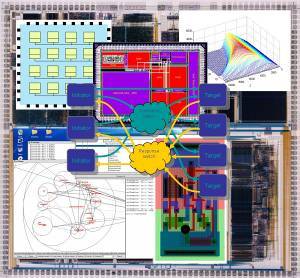
Vision Statement
Zero Power Electronics
Simon Moore, University of Cambridge
15th November 2004
Application Push
As we move into the age of pervasive computing, the number of electronic devices around us will grow enormously. In environments like the car, we are already seeing a proliferation of electronic and electro-mechanical components. Car manufacturers are looking toward moving from 12V systems to 24V systems to cope with the power requirements for active devices. But even when the car is idle, a number of electronic systems (e.g. the alarm) need to operate and yet must take just consume just µW since they are powered from the battery. Even when the engine is on and more power is available, power efficiency is still a concern since it impacts the efficiency of the car. For mobile applications, power efficiency allows small size (smaller batteries) and simplifies packaging (simpler cooling) as well as allowing a longer battery life. As the number of devices in our environment proliferates, power efficiency is vital. Just as we might ultimately strive for a zero emission, zero noise, zero fuel consumption car, we should strive for zero power electronics.
Technology Pull
Electronics is at the cusp of change. For the last 60 years, digital gates have been costly to produce and limited the performance. We are now entering an era where the wires, which were once almost free, being the cost and performance limiter. This trend has well documented in the International Semiconductor Industry Association (ISIA) roadmap which clearly identifies step change needed in circuits and associated design techniques. They also identify spiralling design complexity, escalating power densities and associated thermal problems. Despite this clear roadmap, even giants like Intel have been caught off guard. Intel recently cancelled their five year development programme for the Tejas processor since they were unable to reduce power density to a practicable level.
Relevance to UK Industry
The UK plays a leading role in electronic design, as indicated by the recent House of Lords report on Chips With Everything. The UK has been particularly successful in the embedded systems market when power efficiency and fast time to market are key criteria. Many applications require almost zero power consumption. Automotive applications often require active operation when the car is off and the power consumption is then severely limited. Wearable medical electronics, portable communication equipment and other mobile devices have similar stringent power requirements.
Challenges
There are a number of challenges. Specific to zero power electronics, we need to develop:
- • New architectural structures
- • New circuit level design techniques
- • Improve semiconductors
Each of these areas is huge and can be broken down into smaller projects.
There are also more general challenges:
- • Managing design complexity
- • Building robust and documented tool flows
- • Educating engineers to enable them to design more complex systems using new techniques

